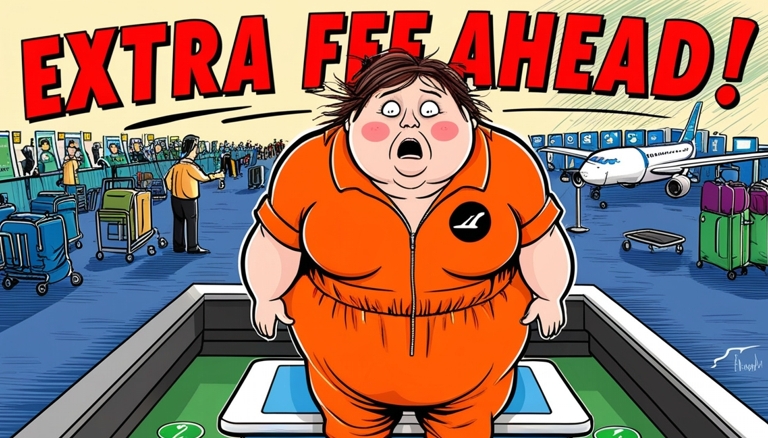The airline industry is facing backlash over reports that overweight passengers may soon be charged higher fares. Source. Airlines argue that increased passenger weight leads to higher fuel costs and space limitations, making weight-based pricing a fairer policy. However, critics are calling it discriminatory, warning of serious mental health consequences for those affected.
Beyond the financial burden, how will this policy impact the mental health of overweight passengers?

The Psychological Toll of Weight-Based Pricing
For many overweight individuals, air travel is already an anxiety-inducing experience. From narrow seats to judgmental stares, flying can be a source of extreme stress. If airlines begin enforcing higher fares for larger passengers, the impact on mental health could be severe.
Here’s how:
1. Increased Anxiety and Fear of Public Embarrassment
Imagine stepping on a scale at the airport or being told at check-in that you need to pay extra due to your weight. This could lead to heightened anxiety, social shame, and public humiliation. Many overweight individuals already dread flying—this policy could make it unbearable.
2. Damage to Self-Esteem and Body Image
Weight-based discrimination is already a reality in society. This policy could reinforce the harmful idea that larger bodies are “less worthy” or “a burden”. Over time, such messages can lead to low self-esteem, body dysmorphia, and even depression.
3. Higher Risk of Avoidance and Social Isolation
For some, this added financial and emotional stress might lead to avoiding air travel altogether. This could mean missing out on important life events—family gatherings, vacations, or even work opportunities. Isolation and avoidance are common factors in anxiety and depression.
4. Worsening of Eating Disorders
Policies that reinforce weight stigma can trigger or worsen eating disorders. Those who struggle with binge eating, emotional eating, or restrictive eating behaviors may experience increased stress, potentially leading to harmful cycles of shame, restriction, and bingeing.
5. The Emotional Impact of Being Seen as a “Burden”
One of the most damaging aspects of this policy is the message it sends—that overweight passengers are an inconvenience and need to pay extra for simply existing. This could lead to feelings of guilt, self-blame, and deep emotional distress.
Should Airlines Rethink This Policy? Psychiatrist Opinion
Instead of charging overweight passengers more, airlines could focus on:
Wider seating options to accommodate all body types
Compassionate and private solutions instead of public weigh-ins
Fair pricing structures that don’t penalize people for their weight
